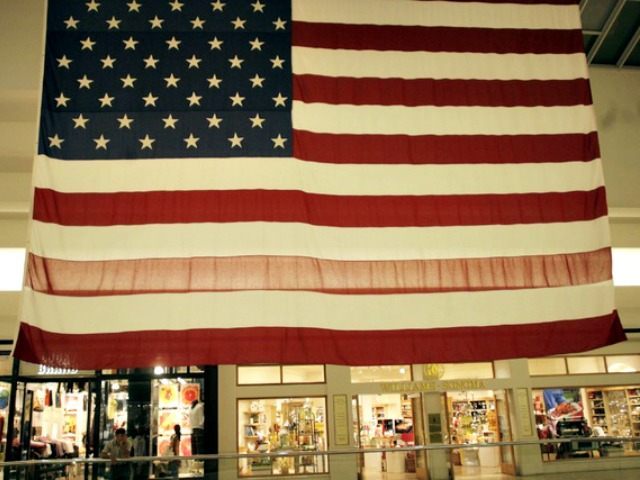On Friday, the United States Bureau of Economic Analysis released its revised economic report for the first quarter of 2015 – and in a “surprising” and “unexpected” twist (surprising and unexpected only because Barack Obama is president and the media are constantly surprised that the Sun God cannot rain gold from the heavens), the GDP dropped -0.7%.
As Zero Hedge points out, the contraction isn’t because of the rain and the snow and the sleet, as the Obama administration is wont to blame. Rather, “Consumption rose just 1.8%, below the 2.0% expected, and contributed just 1.23% of the bottom line GDP number.” GDP would have crashed completely had it not been for businesses building up inventory in expectation of better business. Corporate profits took a serious hit, particularly for non-banking institutions. Zero Hedge calls the profit crash “the third largest corporate profit crash since the financial crisis.” America’s trade deficit also skyrocketed, thanks in large part to the taxes and regulations placed on American companies by the Obama administration.
Jim Pethokoukis of American Enterprise Institute believes that some of the growth failures can be attributed to consistent first quarter mismeasurement. He concludes, “Not a recession but also not nearly good enough. The continued inability of this economy to grow at much faster than 2% is what worries me.”
So we’re not back where we were back during the Great Recession. We’re actually in the run-up to the Great Recession. The economic consensus suggests several key structural factors that contributed to the collapse of the real estate market in 2007, which precipitated the stock market crash of 2008: an overheated real estate market, including government-subsidized subprime loans designed to put even the least deserving earners in a home, and unspoken guarantees of bailouts for those institutions that handed out such loans; a spike in gas prices, forcing many of those low-income homeowners to default on their mortgages; high levels of credit, which people couldn’t pay when they lost their jobs and gas prices spiked; a buildup of savings looking for investment, contributing to overheating in the economy; and the hollowing out of the American manufacturing base.
In the aftermath of the 2008 crash, President Obama has exacerbated these trends rather than rectifying them. Our real estate market is once again overheated, thanks to artificially low interest rates; a full one-third of all Wall Street traders have never seen high interest rates. President Obama’s favored Dodd-Frank Act actually enshrines bailouts into law. Obama’s initiatives on housing aim to keep bad buyers in their homes, and to make housing available to more bad buyers. Obama has driven up student loan debt to record rates; Americans have taken on record levels of credit. Meanwhile, corporate savings have maintained strength as the dollar, despite inflationary policies, continues to remain strong against wildly inflated foreign currencies. And oil prices have now spiked again.
Are we setting ourselves up for another crash? We shouldn’t expect a cratering quite like we saw in 2008 again, but another recession is very much a possibility. The quarterly GDP growth rates for 2007-2008 look like this, side by side with the quarterly GDP growth rates since the beginning of 2014, for example:
2007-2008 2014-2015
0.2% -2.1%
3.1% 4.6%
2.7% 5.0%
1.4% 2.2%
-2.7% -0.7%
2.0%
-1.9%
-8.2%
Good news is on the way, though, according to the ever-surprised economists quoted by Bloomberg:
The economy is poised to pick up this quarter. A Bloomberg survey of economists in May predicted growth will accelerate to a 2.7 percent pace in the April through June period, with household consumption expanding 3.2 percent.
Fed Chair Janet Yellen actually said, “The US economy seems well-positioned for continued growth. Households are seeing the benefits of the improving jobs situation.” Yellen says that the Fed may raise interest rates based on those forecasts, which will quickly tamp down inflation-caused growth in the economy.
Growth in the next quarter would be highly predictable – the first quarter tends to underperform the second historically. The bigger question will come in the third quarter and beyond. But there is no question that President Obama’s recovery is the weakest in recent history, and that his structural changes to the economy make it more, not less likely, that we will experience prolonged economic malaise for some time to come.
Ben Shapiro is Senior Editor-At-Large of Breitbart News and author of the book, The People vs. Barack Obama: The Criminal Case Against The Obama Administration (Threshold Editions, June 10, 2014). Follow Ben Shapiro on Twitter @benshapiro.

COMMENTS
Please let us know if you're having issues with commenting.